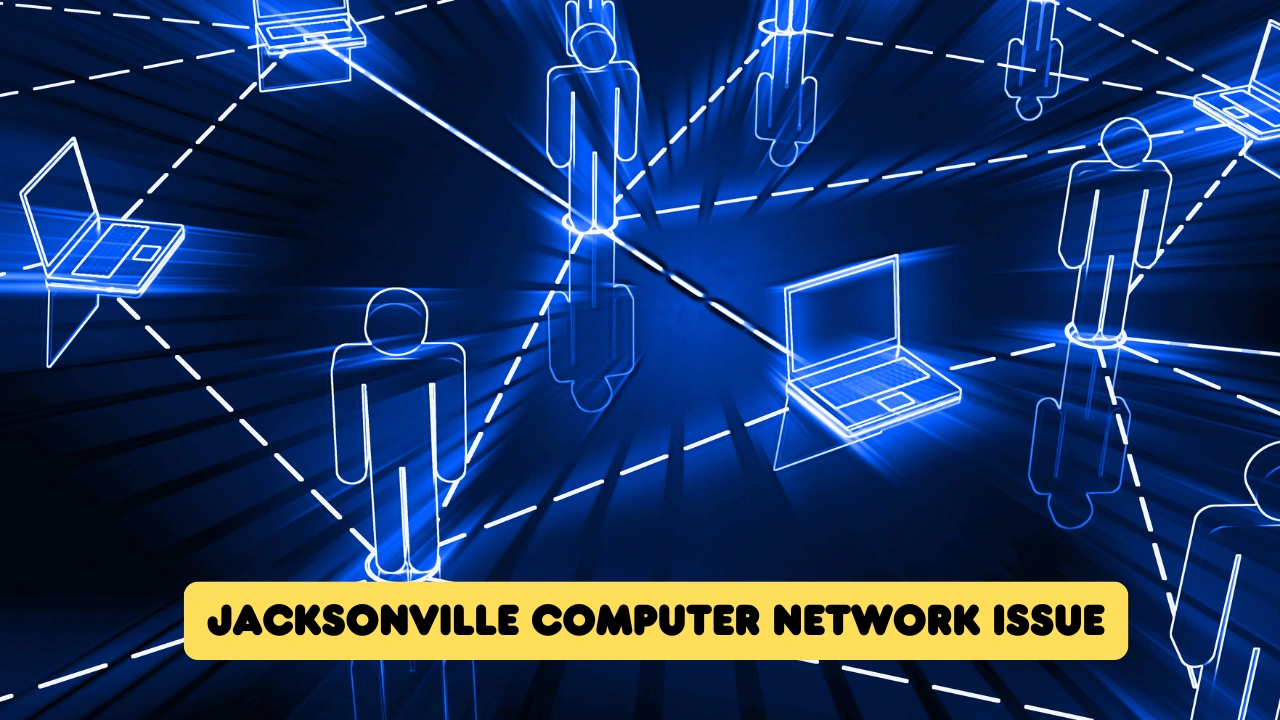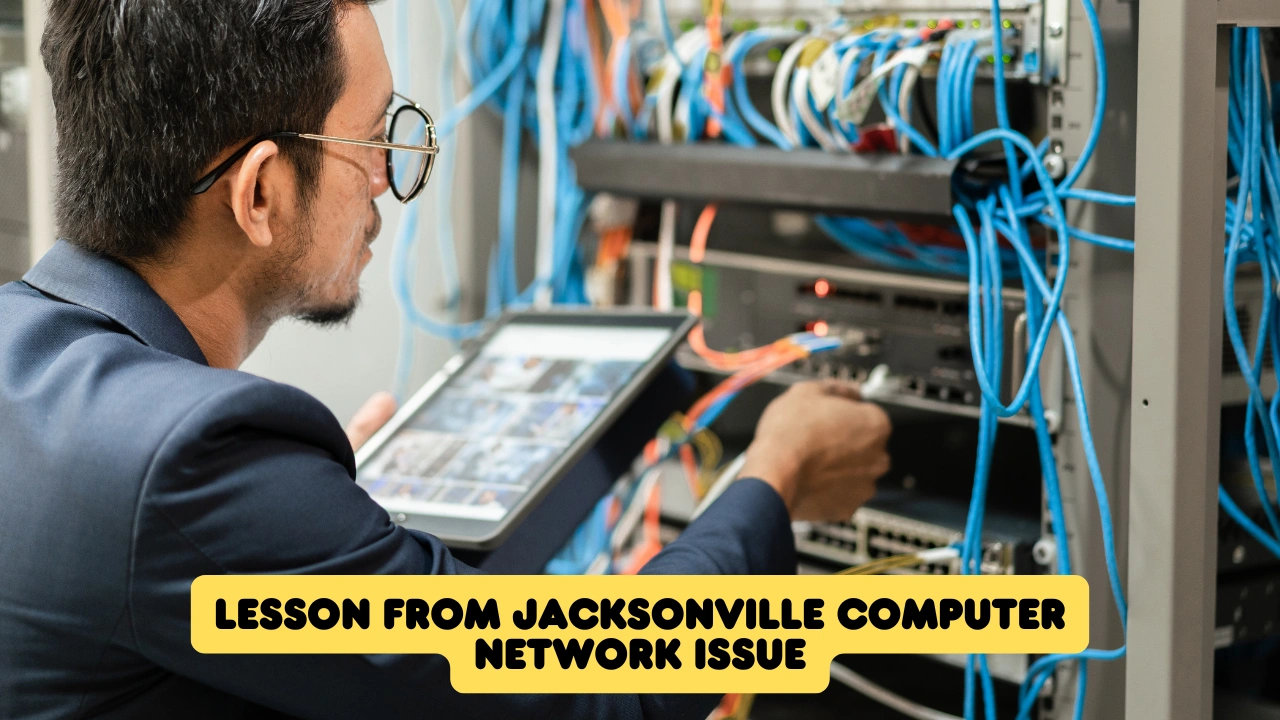Jacksonville Computer Network Issue Disrupted City Services

In late 2024, many residents and officials in Florida were taken by surprise by the Jacksonville computer network issue. This unexpected technical problem caused several city services to become unavailable for days. People couldn’t access the city’s websites, report issues, or even use mobile applications run by the government.
This major network failure affected not just the websites but also communications inside many government offices. The problem raised concerns about how secure and modern the city’s digital infrastructure really is.
What is Jacksonville Computer Network Issue?
The Jacksonville computer network issue refers to a major system failure that disrupted city services in September 2024. A critical piece of hardware failed, causing city websites, apps, and communication lines to go offline. Although alarming, officials confirmed there was no cyberattack or data breach involved.
The issue affected public access to services like jacksonville.gov, 630-CITY, and emergency response tools. Federal agencies like the FBI and Homeland Security were brought in to support the investigation. The failure exposed weaknesses in the city’s IT infrastructure, prompting urgent upgrades and reviews.
Also Read: Callscroll.com A New Digital Communication and Wellness Platform
What Caused the Jacksonville Computer Network Issue?
According to official reports, the Jacksonville computer network issue was caused by a hardware failure. This wasn’t a cyberattack or a virus, as some people first thought. The real issue came from a failed piece of network equipment that played a big role in keeping the city’s systems connected.
A hardware breakdown like this is rare, but when it happens, it can stop many systems from working at once. City websites like jacksonville.gov and jaxready.com were down, and public services like 630-CITY could not respond to residents quickly. The situation showed that even a single failure in key equipment can create citywide problems.
Which Services Were Impacted?
The disruption was widespread, affecting essential services that many citizens rely on every day. These included:
- Access to the official city website and news updates
- Use of the city’s mobile applications
- Communication through the 630-CITY helpline
- External access for departments like the Public Defender’s Office
City employees also had issues accessing shared files, emails, and interdepartmental systems. This made work slower and more difficult for government workers trying to help the public.
The Role of Federal Agencies in the Investigation
As soon as the problem became serious, federal agencies like the FBI and Homeland Security stepped in to support local officials. Their role was to ensure that this wasn’t a cyberattack or part of a larger security breach.
After full investigation, they confirmed that the Jacksonville computer network issue had nothing to do with hacking or ransomware. It was simply a technical failure in the city’s IT infrastructure, but one that exposed how unprepared the system was for such problems.
Also Read: Lwedninja A Game-Changing Platform for Students and Freelancers
Public Reactions and Concerns
Residents were concerned about what this failure meant for their safety and privacy. When key city services go offline, people worry if their data is safe or if emergency responses are delayed. Although there were no major incidents reported, the event reminded everyone that strong, modern technology systems are crucial for smooth city operations.
Some people also pointed out that this issue could have been prevented with better planning and equipment updates. If the network had better backup systems or regular maintenance checks, the failure might not have happened at all.
How Jacksonville Responded to the Crisis
The city acted quickly once the issue was found. IT teams worked around the clock to replace the failed hardware and bring services back online. They also worked with vendors who supplied the network equipment to prevent similar issues from happening again.
Here is a quick overview of the timeline of events and responses:
| Date | Event/Action |
|---|---|
| September 2024 | Major network failure reported |
| Day 1-2 | City websites and services went offline |
| Day 3 | FBI and Homeland Security began investigation |
| Day 4-5 | Root cause found: network hardware failure |
| Day 6-7 | Services began coming back online |
| After 1 week | Most city offices returned to normal |
The Case of JFRD and Internal System Trouble
While the city’s main network failure was being fixed, another issue surfaced. The Jacksonville Fire and Rescue Department (JFRD) reported problems with its mobile data terminals. These devices help firefighters get directions and important data in the field.
During the network issue, many of these systems stopped working properly. Although city officials claimed this was unrelated to the Jacksonville computer network issue, it added to the pressure on emergency response teams.
Also Read: GIFHQ Your Ultimate Destination for Animated GIFs
Lessons Learned From the Jacksonville Computer Network Issue
This network failure served as a wake-up call for cities across the country. It showed how much we depend on technology and how quickly things can fall apart without proper planning.

Here are a few important lessons Jacksonville and other cities should keep in mind:
- Regular equipment checks are essential to prevent surprise failures.
- Backups and failover systems should be in place to switch services automatically during hardware failure.
- Strong communication between city teams and federal agencies helps resolve problems faster.
- Investing in IT infrastructure now can prevent bigger costs and disruptions later.
Emergency Response and Public Safety in Jacksonville Outage
During the Jacksonville computer network issue, emergency response systems like 911 and fire dispatch remained active but faced internal delays. The Jacksonville Fire and Rescue Department (JFRD) reported problems with their mobile data terminals. These issues made it harder for responders to receive live updates while in the field.
City officials confirmed that the JFRD’s system failure was not directly linked to the main network outage. Still, the timing raised concerns about public safety and emergency preparedness. The event highlighted the need for stronger backup systems in essential departments.
Jacksonville’s Next Steps
After fixing the immediate problem, Jacksonville plans to review and upgrade its network systems. City officials want to make sure that no Jacksonville computer network issue like this ever happens again.
They are now working with cybersecurity and IT experts to design a system that’s modern, strong, and flexible. This includes better backup plans, regular testing, and new training for city employees who handle tech systems.
Also Read: Exhentaime A New Way to Manage Time and Boost Productivity
Conclusion
The Jacksonville computer network issue showed how one small failure can affect an entire city. From lost access to websites to disrupted emergency systems, the impact was large and unexpected. However, it also gave the city a chance to learn and improve.
By upgrading its technology and learning from this event, Jacksonville is taking the right steps toward a safer and more reliable future. Residents can expect better systems and stronger digital services going forward.






